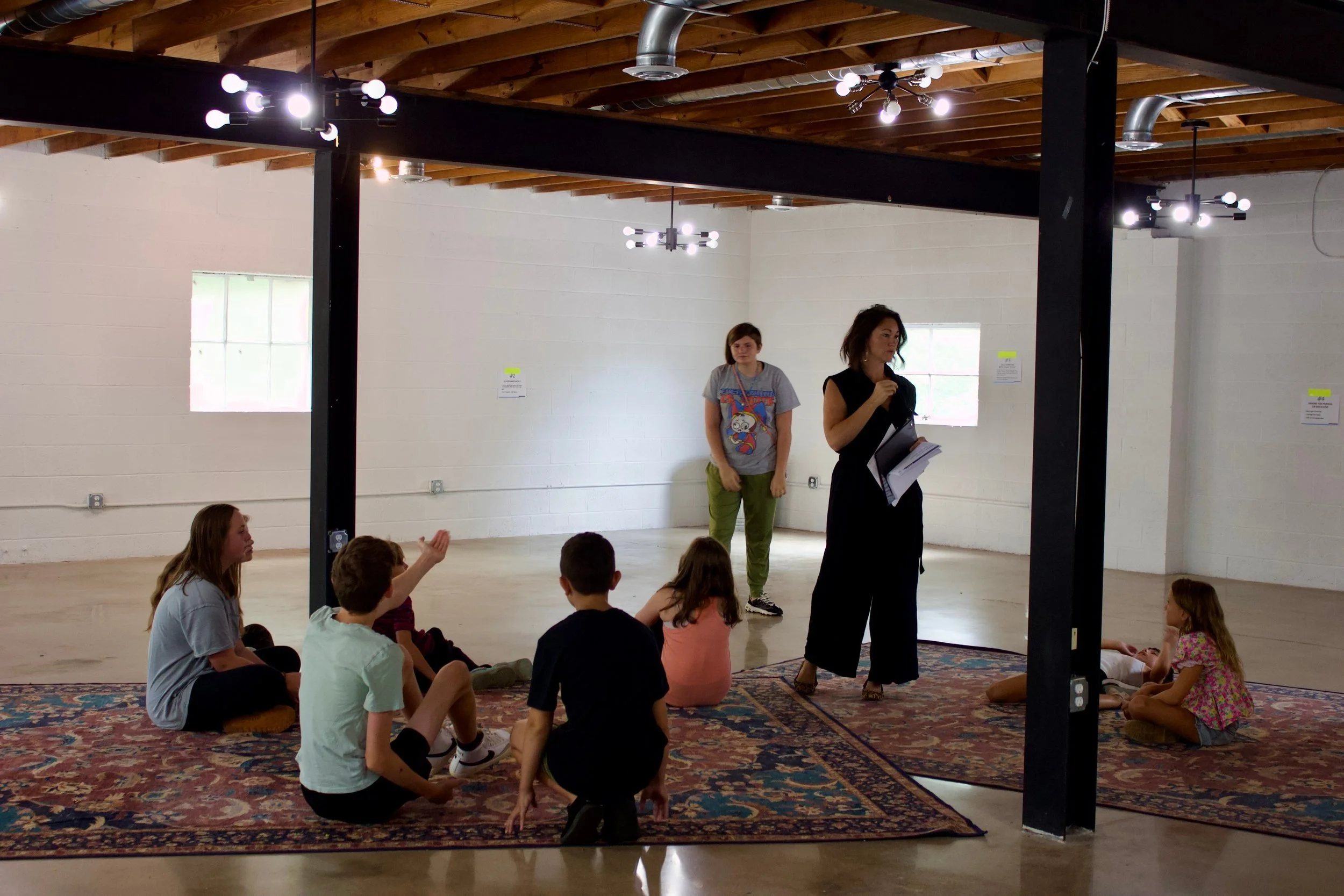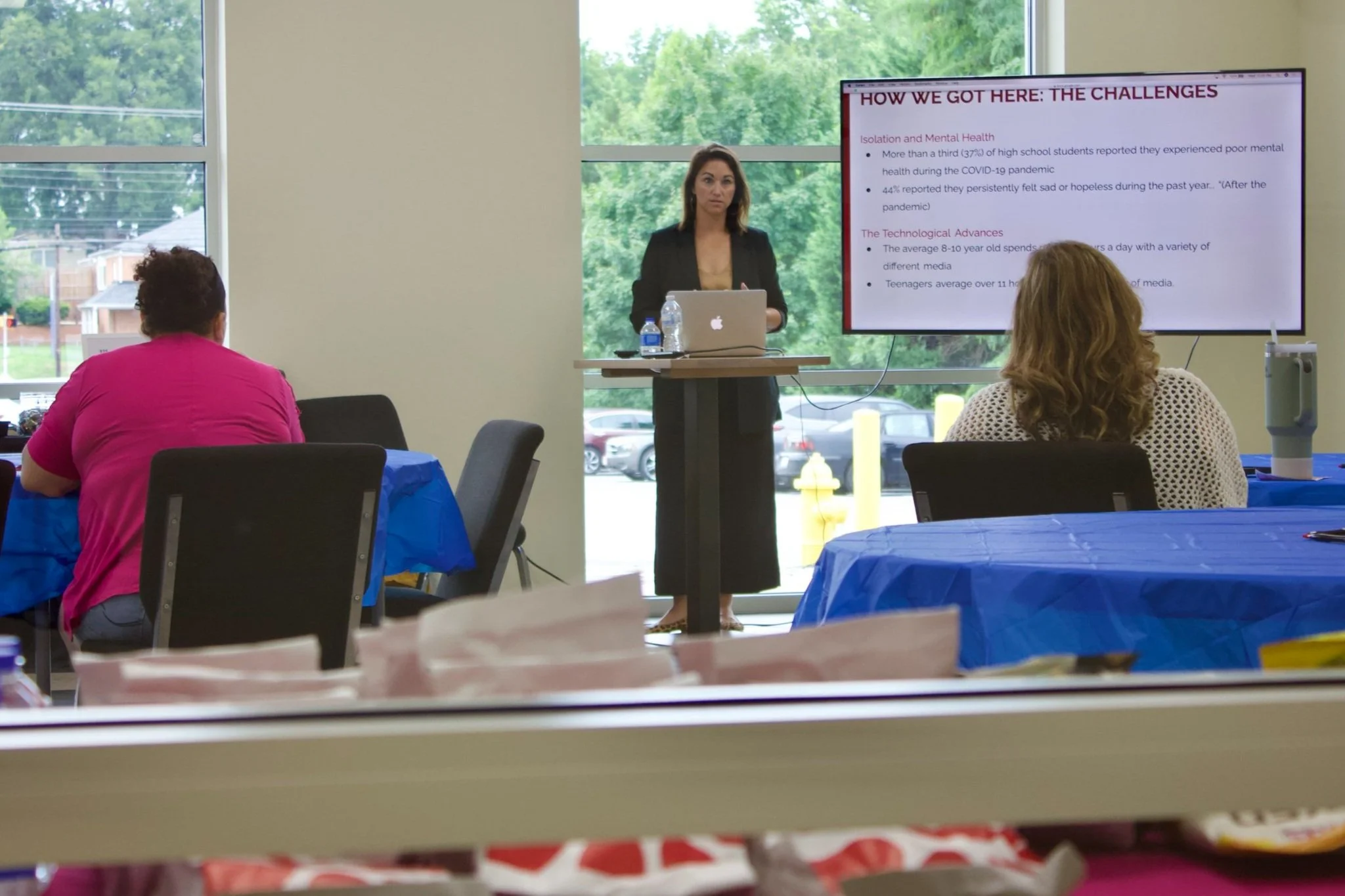Knowledge is Power: The Role of Education in Combatting Human Trafficking
Uneducated vs. Educated
In today’s world, human trafficking looks very different from what we have seen in movies; these individuals are smart and calculated, and with the high usage of social media and other online platforms, our children are at risk, which is why proper prevention education is critical. At Freedom 4/24, we strive to educate students so they can spot dangerous behavior and report it.
In 2024, we officially launched Freedom 4/24’s Human Trafficking Prevention Curriculum for grades 5-12. Through this curriculum specifically written for schools, students will learn about boundaries and consent in healthy relationships, online safety, sextortion, as well as a comprehensive understanding of exploitation and human trafficking in the world today and how to respond.
This knowledge enables students to recognize the signs of human trafficking, understand its root causes, and engage in safe practices when they are utilizing online platforms such as social media. They become educated students.
On the contrary, an uneducated student may lack this critical information, making them more vulnerable to manipulation and exploitation. Without the tools to identify risks or the resources to seek help, these students may be at a higher risk of falling victim to human trafficking.
Human trafficking may sound like a crime in other countries, or something that happens to only certain people groups, but in reality, child exploitation and human trafficking are crimes affecting every community in America. John Clark, former CEO of the National Center for Missing & Exploited Children once told Freedom 4/24, if you were to throw a dart at a map, no matter where it lands, child exploitation is happening in that city.
In 2023, the NCMEC CyberTipline reported more than 36.2 million reports of online child exploitation, with the vast majority referring to incidents of suspected child sexual abuse material (CSAM).
So what do we do? We equip children with education.
How to stay safe
Being smart online begins with maintaining privacy; sharing personal information such as location, school or daily routines can make one vulnerable to manipulation. It is essential to be mindful of accepting friend requests and messages from strangers and to know who you are speaking to online. Additionally, being able to recognize red flags such as overly persuasive conversations, requests for private information, or offers/requests to meet in person can help students safeguard themselves. It’s vital that youth learn about boundaries and consent, so that when something doesn't seem right, they have the courage and practiced language to say no, and tell a trusted adult.
Without the knowledge or skills to critically evaluate what and who they encounter, an uneducated student may fall victim to these deceptive online interactions. For example, a 14 year old girl could receive a message online from a predator who is posing as someone their age or as someone they know. This individual may ask for personal information such as a home address, the name of the school they attend, their relationship with their family, or maybe even nude photos if they have gotten to know each other for a certain period of time. This is known as grooming. An uneducated student may not see anything wrong with these questions and grooming tactics and think they are giving this information to a friend when in reality they are relaying personal information to a predator. That is why prevention education is important and why every student should have access to a life-saving curriculum.
The work of Freedom 4/24
Here at Freedom 4/24, we are dedicated to educating students about human trafficking through our Human Trafficking Prevention Curriculum. By providing prevention education through our workshops, presentations, school curricula, and resources, we aim to empower students to recognize the signs of human trafficking and understand its impact. Our curriculum offers real-life stories, statistics, and practical ways to protect yourself from exploitation. Through these initiatives, we hope to inform students and inspire them to take action while cultivating a generation of informed students committed to fighting against human trafficking.
How $24 can educate a student
This year Giving Tuesday is on December 3rd and here at Freedom 4/24 we are asking you to donate $24 to help support our mission of ending human trafficking both locally and globally.
The average class size in the United States is 24 students, and it costs $24 to educate one student about the dangers of human trafficking. With your donation you can help us provide life saving information to students and make it so human trafficking is not a part of anyone’s story.
Will you give $24?
freedom424.org/24


